Understanding the Historic Context of the Aland Islands Impartial Standing
The Åland Islands, an autonomous area of Finland, have maintained a novel standing of neutrality because the early twentieth century, primarily as an inevitable results of worldwide agreements and geopolitical concerns. Following the Treaty of Paris in 1856, which ended the Crimean Battle, the islands had been demilitarized and their impartial standing was acknowledged by the nice powers of Europe. this standing was reaffirmed after World Battle I and integrated into the League of Nations in 1921. The strategic location of the islands within the Baltic Sea made them a focus for peace negotiations, influencing their political framework and the need for a non-aligned place. Over the many years, this association has facilitated a sure stage of stability, permitting the islands to thrive economically and culturally whereas remaining largely unscathed by regional conflicts.
The implications of NATO membership for Finland are multifaceted, particularly in regards to the standing of the Åland Islands. The islands’ residents take pleasure in particular rights and protections below Finnish regulation that complement their impartial standing. Nevertheless, the alignment with NATO may necessitate a reconsideration of those norms, main to potential conflicts in protection coverage and native autonomy. Key concerns embrace:
Protection Obligations: How may NATO’s collective protection commitments alter Åland’s longstanding neutrality?Navy Presence: Would NATO forces be allowed to function or set up bases on the islands?Native Governance: How can native governance proceed to guard the cultural and political autonomy of Åland’s residents?
Furthermore, public sentiment in Åland has traditionally favored non-alignment, elevating questions in regards to the way forward for their id and safety in a altering geopolitical panorama.
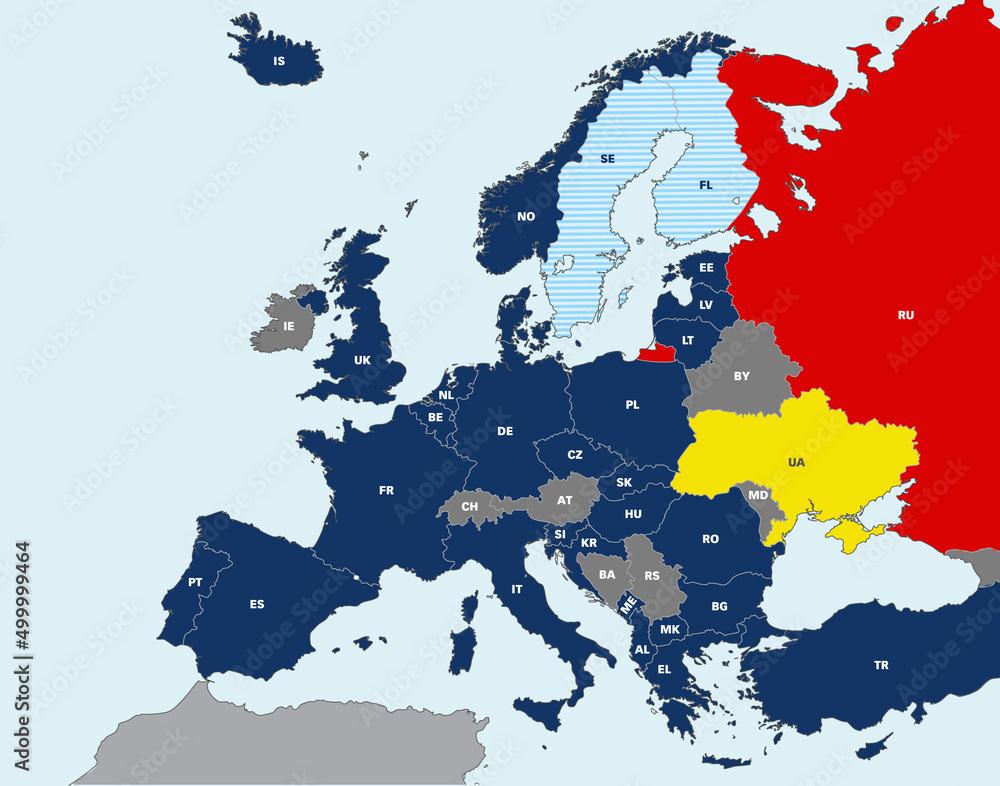
Implications of NATO membership for Finland and the aland Islands
The accession of Finland to NATO carries vital implications not only for the Finnish mainland, but in addition for the semi-autonomous Aland Islands. Recognized for his or her distinctive standing,the Aland Islands are demilitarized and take pleasure in a excessive diploma of self-governance,which raises questions on how their standing may evolve now that Finland has joined a navy alliance. Key concerns embrace:
safety Ensures: NATO membership gives Finland with collective protection assurances, doubtlessly altering the safety panorama of the Aland Islands.Navy Presence: The presence of NATO forces within the area could result in discussions on the extent and nature of navy presence within the demilitarized zone.Alignment with NATO Insurance policies: The Aland Islands’ governance could must adapt to align with NATO’s operational frameworks, impacting their autonomy.
Furthermore, the geopolitical dynamics in the baltic Sea may immediate a re-evaluation of the Islands’ strategic significance. The worldwide neighborhood could view them as a pivotal level for NATO operations in northern Europe. The potential penalties embrace:
Elevated Consideration: the islands could garner extra focus from NATO allies,doubtlessly remodeling their position in regional safety logistics.Financial Alternatives: Enhanced safety may bolster commerce and tourism, benefiting the native financial system whereas sustaining their distinct tradition.Diplomatic Challenges: Finland’s NATO membership may complicate its relations with neighboring nations, requiring cautious diplomatic navigation concerning the Islands.
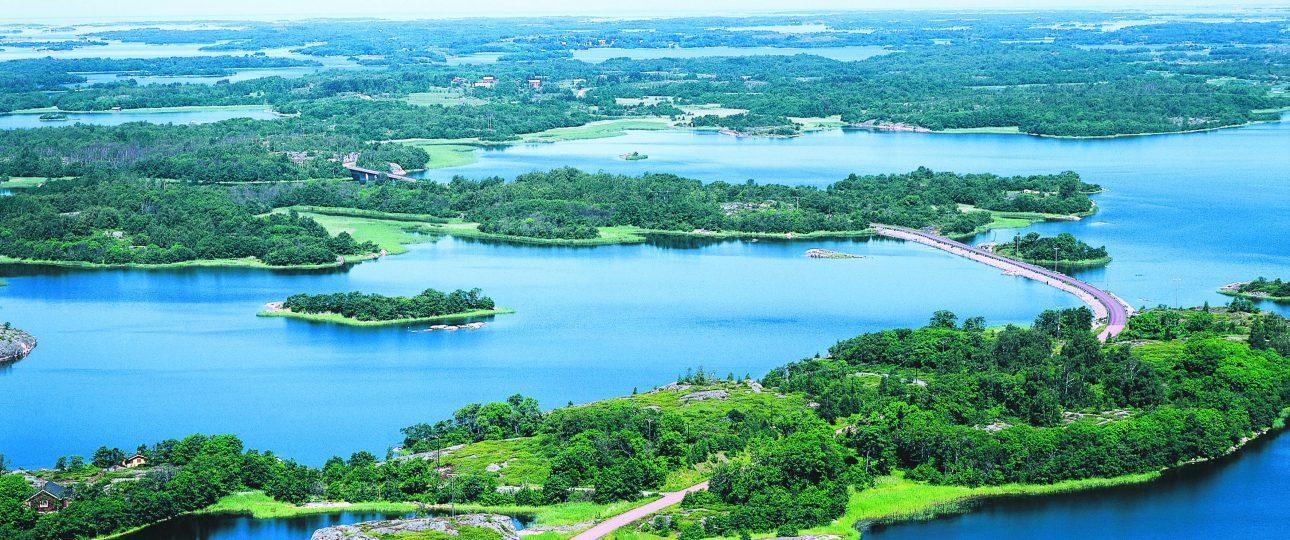
Geopolitical concerns: The Aland Islands in a Altering Safety Panorama
The Aland Islands, a novel autonomous area of Finland, discover themselves at a crossroads within the face of shifting geopolitical dynamics.As discussions surrounding NATO membership intensify in the Baltic area, it turns into important to judge how this potential growth may affect the standing and safety framework of the islands.The islands take pleasure in a demilitarized standing below worldwide regulation, primarily because of their traditionally impartial stance. Nevertheless,the combination of Finland right into a collective protection alliance may result in renewed scrutiny over this standing,elevating issues about navy presence and strategic positioning within the Baltic Sea.
A number of elements contribute to the complexities surrounding the Aland Islands in a NATO-context:
Geographic Location: Nestled strategically between Sweden and Finland, the Aland islands may serve as a big level for maritime operations.Worldwide Treaties: The demilitarization of the islands is assured by the 1921 League of Nations determination, which complicates any potential navy adjustments.Native Sentiment: The residents maintain a powerful sense of independence and will resist alterations to their longstanding sovereignty in gentle of worldwide pressures.Aspectcurrent SituationNATO Membership ImpactDemilitarized StatusProtected by worldwide lawPotentially challenged or overturnedStrategic ImportanceMinimal navy installationIncreased curiosity from NATO alliesPublic OpinionPro-independence sentimentsMixed reactions in the direction of NATO alignment
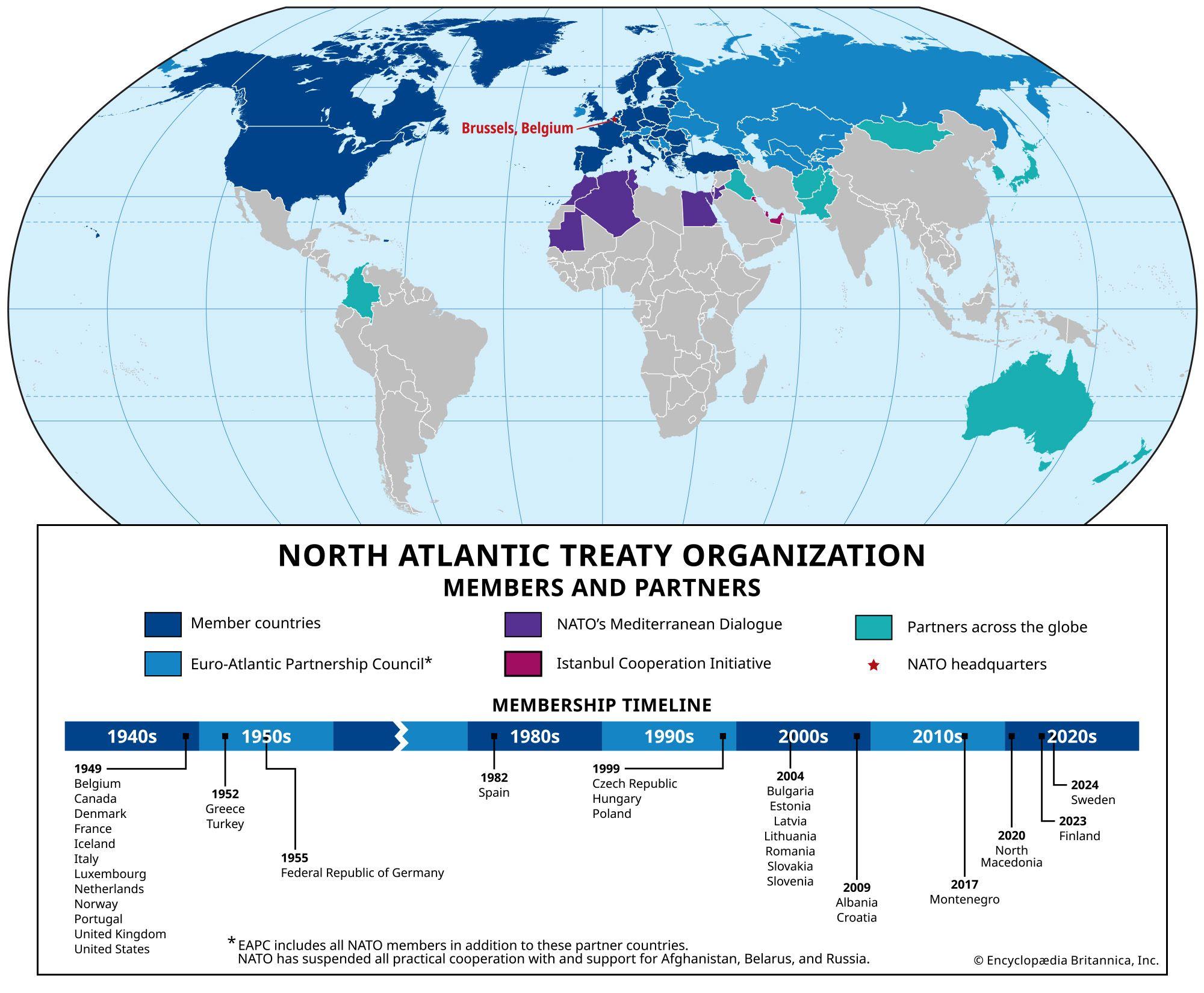
Authorized Framework and Autonomy: What NATO Membership may Imply for Native Governance
the potential accession of the Åland Islands to NATO introduces complicated authorized concerns concerning native governance and autonomy. In the context of worldwide treaties, NATO operates below a collective protection framework that would override sure points of regional governance buildings, particularly when safety issues come up. Native authorities may discover their legislative powers constrained by NATO’s overarching insurance policies, which prioritize navy cohesion and readiness over regional autonomy. As an inevitable consequence, the islands’ self-governance may face pressures that problem their conventional rights, embedded of their distinctive historic and political standing.
Furthermore, the implications of this membership could necessitate a re-evaluation of present legislative frameworks governing native decision-making. Important areas that might be affected embrace:
Financial Insurance policies: Potential adjustments in commerce agreements and navy spending may influence the native financial system.Safety Measures: An elevated navy presence could result in new rules concerning land use and public security.Cultural Preservation: Autonomy may doubtlessly be examined as NATO methods may prioritize operational effectivity over native customs.
this dynamic raises essential questions in regards to the stability between nationwide commitments and native governance, necessitating a cautious engagement between Åland authorities and the broader Finnish authorities to safeguard native pursuits amid shifting geopolitical landscapes.
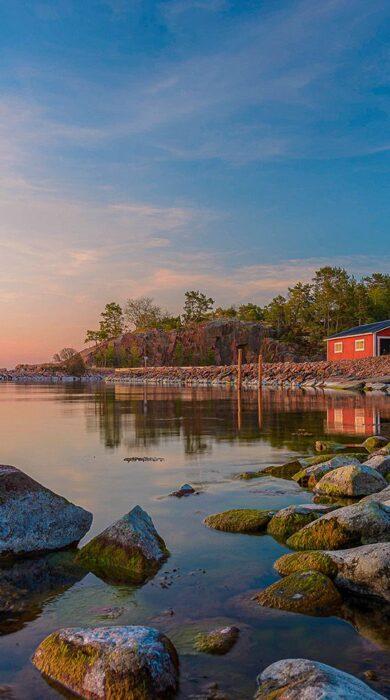
Suggestions for Balancing Safety and Native Pursuits in Aland Islands
The distinctive geopolitical standing of the Åland Islands necessitates a cautious method to balancing safety measures with native pursuits. Key suggestions can assist make sure that the aspirations of each regional authorities and the broader safety framework are aligned.To begin, establishing a devoted dialogue platform involving native stakeholders, NATO representatives, and Finnish authorities may facilitate clear discussions about potential adjustments in safety coverage. This platform would encourage the alternate of concepts and issues, guaranteeing that native voices are heard and regarded in varied decision-making processes.
Moreover, it’s certainly essential to prioritize environmental sustainability in any new safety initiatives. Because the islands are famend for their pure magnificence, any navy or infrastructure plans should combine environmental assessments to reduce ecological impacts. Different methods may embrace the formation of disaster administration protocols that think about native neighborhood resilience and enter, with coaching workouts that incorporate residents and native governance buildings into preparedness situations. By selling a cooperative safety framework that respects each NATO commitments and native specificities, a harmonious stability could be achieved that strengthens each safety and neighborhood well-being.
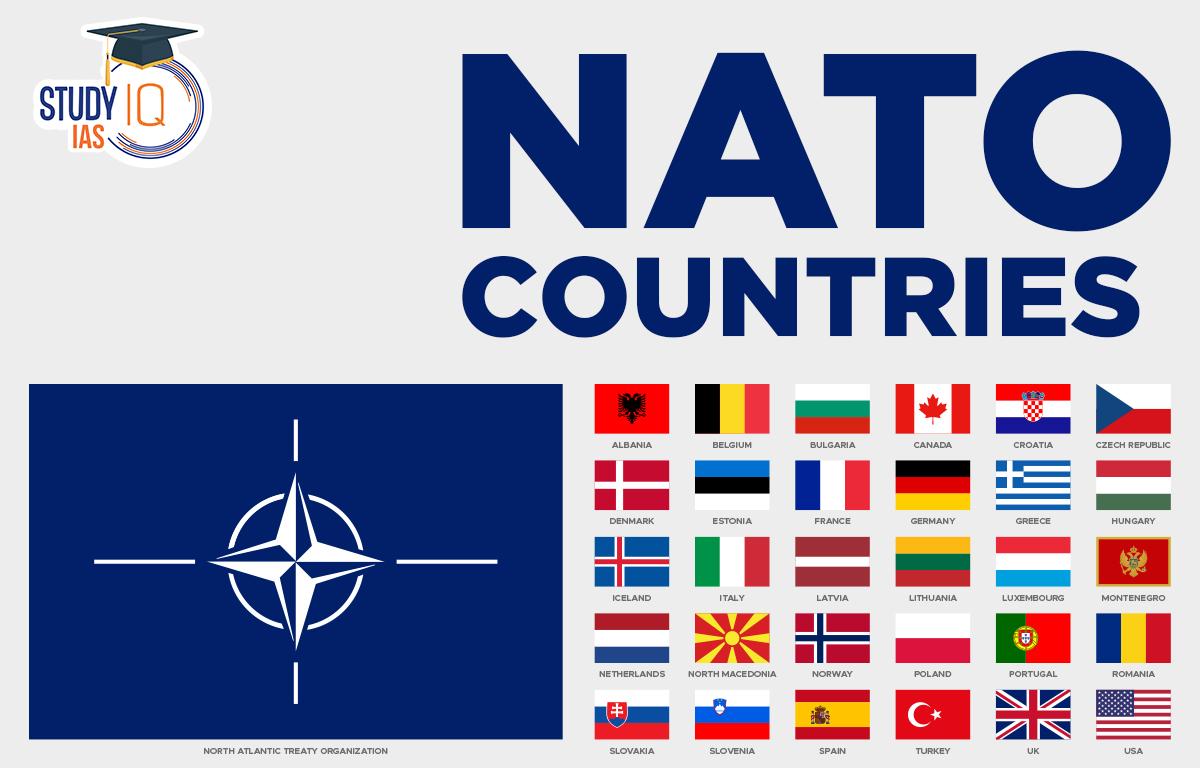
Future Situations: Navigating the Challenges of NATO Membership for the Aland Islands
The choice for the Åland Islands to navigate NATO membership is fraught with implications, not just for native governance but in addition for worldwide relations within the area. Key challenges embrace sustaining their distinctive standing as a demilitarized zone whereas aligning with NATO’s collective protection technique. This duality requires cautious negotiation to make sure that the islands protect their native autonomy and cultural id amidst the broader navy alliances. Stakeholders, together with native political leaders, residents, and worldwide diplomats, should weigh the advantages of enhanced safety in opposition to the potential erosion of Åland’s longstanding neutrality.
The shift in safety dynamics may additionally affect the islands’ financial stability and tourism, each important elements of their native financial system. with the chance of elevated navy presence, there is a priority that the wealthy cultural panorama could also be overshadowed by geopolitical tensions. To illuminate the attainable financial trajectories, the following desk outlines varied situations and their potential impacts:
scenarioPotential ImpactIncreased NATO PresenceBoost in protection contracts, however potential issues over native autonomyTourism GrowthIncreased guests because of heightened safety, however rising tensions could deter someEconomic DiversificationOpportunities in protection and know-how sectors, although danger of dependency on navy funding
Future Outlook
the potential implications of NATO membership for the Åland islands are multifaceted and warrant cautious consideration.As discussions surrounding regional safety and protection dynamics proceed to unfold, the standing of this autonomous archipelago stays a pivotal think about each native and worldwide contexts. The Åland Islands’ distinctive geopolitical place, mixed with the present diplomatic frameworks, will undoubtedly affect how their future aligns with NATO’s aims and the broader stability of the Baltic Sea space.Stakeholders, from policymakers to residents, will must have interaction in ongoing dialogue to navigate the complexities of this evolving panorama, guaranteeing that the pursuits and identities of the Åland Islanders are safeguarded because the area adapts to new safety paradigms. With developments on this space doubtless to be carefully scrutinized, continued reporting will be important in understanding the implications of NATO’s growth on the Åland Islands and past.
Source link : https://europ.info/2025/02/26/aland-islands-2/nato-membership-could-affect-status-of-aland-islands-euractiv/
Creator : Charlotte Adams
Publish date : 2025-02-26 22:57:00
Copyright for syndicated content material belongs to the linked Source.


